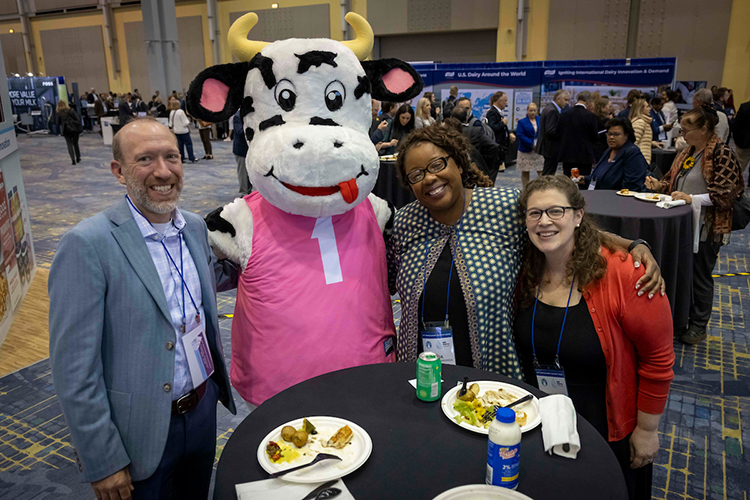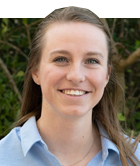
This week, the U.S. dairy community took advantage of an opportunity it hadn’t had in three decades when the International Dairy Federation’s (IDF) World Dairy Summit was held on American soil. Dairy farmers, processors, leaders, and advocates from more than 50 countries gathered in Chicago to learn from one another, share expertise, and gain new perspectives about dairy around the world.
For me, it was truly inspiring to see the variety of people and organizations that are working every day to make the global dairy community better. While we were there to celebrate dairy and make connections, the most powerful part of the event is the ability to problem solve. Sessions on dairy demand, innovations in farming and processing, upcycling waste, environmental impacts, dietary guidelines, trade, heat stress, workforce development, and so much more brought together experts from different parts of the world to share their experiences and ideas.
Guess what — we are all dealing with similar challenges! Sustainability and all it entails was a significant theme throughout the week’s discussions. Profitability was highlighted, as was animal care, new innovations to meet consumers’ needs, and connecting the goodness of dairy with our populations. These are not U.S. challenges; they are worldwide challenges. And for America’s dairy industry to thrive, there must be customers and infrastructure around the world that supports it, so working together to solve those issues strengthens everyone.
Having the conference in the U.S. was a big deal so we could show the world more about who we are as a national dairy industry, said Barbara O’Brien, president and CEO of Dairy Management Inc. There may be an international prerogative that the American dairy industry is very, well, industrial, but we know that’s not the case with 95% of farms being family owned. Attendees could see that throughout the sessions and are experiencing that today with post-conference tours to dairy farms and businesses in Wisconsin, Indiana, and Michigan.
The conference also highlighted just how fortunate we are to be involved in the dairy community. Despite narratives that may try to say otherwise, milk and dairy products are in high demand around the world because they provide an unmatched nutrient package. For developing places around the world, that is especially important. Claudio Rodriguez talked about how their dairy processing company in South America feels that solving malnutrition and food insecurity in Peru and the surrounding areas is part of their duty. “We definitely see milk as a very good opportunity to solve this,” he described.
On an even more basic level, selling milk provides opportunities to better the lives of millions of people around the world, many of whom in places like Africa and India are women. These are truths it can be easy to lose sight of in our country.
In Kenya, for example, Margaret Munene said she was able to go to school because her mother had a cow. She eventually got one for her family, and their herd later grew to the point where they were selling milk on the informal market to their community. Munene began to partner with other dairy farmers around her to handle their milk, and today she works with 500 small scale farmers, 85% of whom are women, to process their milk and provide a source of income. Palmhouse Dairies has brought in experts to help their farmers learn best practices for animal care and milk quality. Munene explained they have also helped many of their female farmers open their first bank accounts.
Her view on dairy sums up the attitude of the conference very succinctly: “A cow is never a problem. It is always a solution.”

Katelyn Allen joined the Hoard’s Dairyman team as the Publications Editor in August 2019 and is now an associate editor. Katelyn is a 2019 graduate of Virginia Tech, where she majored in dairy science and minored in communication. Katelyn grew up on her family’s registered Holstein dairy, Glen-Toctin Farm, in Jefferson, Md.